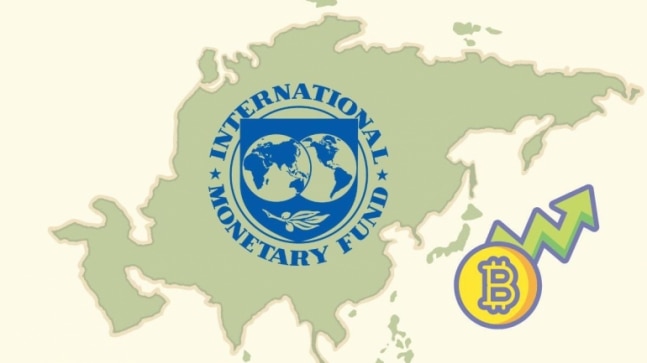Jump to navigation
Speak Now
A US-Based financial institution, the International Monetary Fund (IMF), has said that immediate regulation is required due to the co-movement of cryptocurrencies and equity markets across Asia, particularly in India, Thailand, and Vietnam.
The IMF noted in a blog post that institutional and retail investors are among the top users of the cryptocurrency market in these three nations and that it is past due for financial regulators to intervene and integrate the cryptocurrency and financial markets.
Asia has been a big driver of global crypto trading volumes. Now the region faces a risk that these digital assets could undermine financial stability. See #IMFBlog for more. https://t.co/95zZ5EjnIV pic.twitter.com/tQHQPvQ7qR
The IMF has further noted that the return correlation between Bitcoin and the stock market in India has increased tenfold since the epidemic, indicating that crypto offers modest risk diversification benefits. Furthermore, volatility correlations rose three times, indicating “possible risk emotion spillovers between the crypto and equities markets”.
It stated that the rise in crypto-equity correlations in Asia was accompanied by a notable increase in spillovers of crypto-equity volatility in India, Vietnam, and Thailand.
This indicates that the two asset classes are becoming more interconnected, which enables the effects to be communicated to financial markets.
It further noted that the digitisation of money would speed up the financial inclusion of those who cannot afford to utilise traditional banks and would produce an environmentally friendly payment system.
Additionally, government organisations in Asia are concerned about the hazards posed by cryptocurrencies as their acceptability develops. As a result, they are putting more emphasis on regulation, and Thailand, Vietnam, and other nations are developing regulatory frameworks. The maximum tax bracket for capital gains on crypto assets in India is 30 percent, plus surcharges and a cess.
As per the IMF, cryptocurrency poses a risk to financial stability as long as it is unregulated. The primary selling point of the digital assets, the crypto market, appeared to be isolated from the established financial system prior to the outbreak. Bitcoin and other cryptocurrencies demonstrated minimal association with Asian stock markets, dispelling worries that cryptocurrencies will lead to financial instability.
However, the global crypto market is continually witnessing a roller-coaster ride as its value surged 20-fold to $3 trillion in December 2021. As millions were staying at home and got government aid, crypto trading surged. Later, in June 2022, when the Federal Reserve increased interest rates to curb inflation, the crypto market fell below $1 trillion.
“They should establish clear guidelines on regulated financial institutions and seek to inform and protect retail investors. Finally, to be fully effective, crypto regulation should be closely coordinated across jurisdictions,” the IMF said in the blog post.
3 IAF officers sacked over missile misfire into Pakistan
Residents pack up, security in place: Stage set for Noida twin towers demolition
Nasa releases ghostly hums coming from a black hole | Listen
What if Liger flops? Vijay Deverakonda says ‘If I react angrily…’
Cattle smuggling case: CBI judge threatened, asked to release TMC leader Anubrata Mondal
Fact Check Video: Not J&K, this video shows clashes between coca farmers and police in Bolivia
BJP MLA T Raja Singh sent to 14-day judicial custody over Prophet remark
Decoded: How Supertech’s illegal twin towers will be demolished on August 28
Supreme Court orders shifting of Sukesh Chandrashekhar from Tihar Jail to Mandoli Jail
Akshay Kumar blames himself for his back-to-back flops, Anupam Kher takes a dig at Aamir Khan
BJP suspends Telangana MLA T Raja Singh for remarks against Prophet
Activists move SC against release of Bilkis Bano rapists
Copyright © 2022 Living Media India Limited. For reprint rights: Syndications Today
Add IndiaToday to Home Screen
Author
Administraroot


